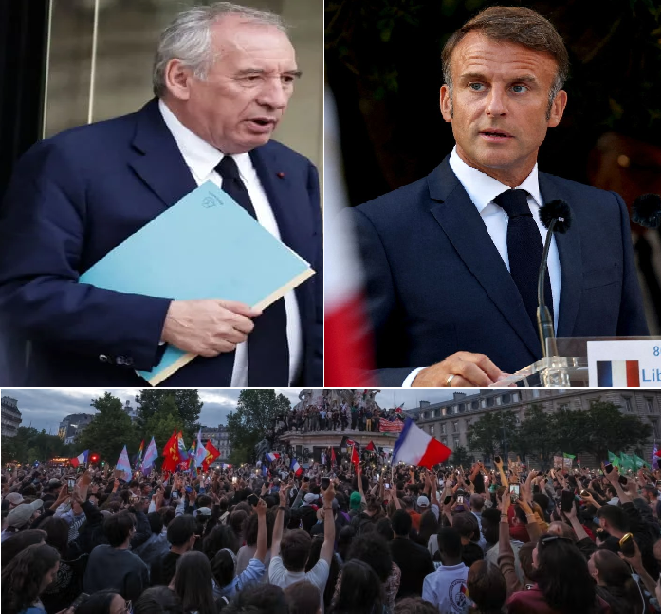
- France faces a debt crisis with debt at 114% of GDP (€3.3 trillion). Prime Minister Bayrou lost a no-confidence vote over €44 billion budget cuts.
- Macron’s party struggles to maintain stability. France will soon have its fifth Prime Minister in three years. Calls for Macron to quit before 2027 are growing.
- Protests erupt over the economy, Ukraine aid, EU green rules, and immigration inflows. Public anger keeps rising.
- Marine Le Pen’s election ban leaves the far-right leaderless. Centrists and the left now dominate a divided Parliament.
France, the second-largest economy of Europe, has now become a problematic case as the country is currently suffering from a severe debt crisis. The debt has skyrocketed to almost 114% of the country’s GDP, standing at €3.3 trillion. As a result, President Emmanuel Macron’s Renaissance Party, under Prime Minister François Bayrou, proposed a revolutionary budget cut of €44 billion. While the government considered this a bold move, French lawmakers thought otherwise. In a no-confidence motion, Bayrou lost the support of Parliament, which rejected his appeal with 364 votes against him and only 194 in favour.
This has created a major political crisis for President Macron, as France is now set to elect its fifth Prime Minister in just three years. Notably, Bayrou was appointed only nine months ago and had not yet completed one year in office. This reflects the deeper political instability within France, where no single party currently holds a majority. The people are dissatisfied with the government, which has failed to provide stability. This growing unrest has also sparked demands from opposition parties and citizens that President Macron should step down ahead of the 2027 Presidential election.
Complicating matters further, far-right leader Marine Le Pen has been barred from contesting future elections due to a corruption scandal, as ruled by a Paris court. This has led many to accuse Macron of engaging in vote-bank politics and weakening French democracy. The Renaissance Party has failed to maintain political stability, and frequent changes in the Prime Minister’s office have worsened public frustration.
In addition to this, protests are erupting across France over multiple issues. Citizens are unhappy with Macron’s strong support for Ukraine in the ongoing war, especially at a time when France itself is struggling economically. Many believe that excessive aid to Ukraine is draining French resources. Farmers have also staged major demonstrations since 2022 against the European Union’s green regulations that call for replacing synthetic fertilisers with eco-friendly alternatives. They argue that such policies would compromise agricultural efficiency and productivity.
Immigration has become another flashpoint. Large inflows of migrants from West Asia and the Sahel region have raised concerns about cultural integration and security. Many French citizens feel that their identity and safety are under threat.
Meanwhile, the far-right is trying to capitalise on this unrest, but faces internal challenges as Marine Le Pen cannot contest future elections. This has created a leadership vacuum in the far-right camp. The political contest in France is now between centrists and the left, both of whom gained ground in recent snap elections. The result is a fragmented Parliament with no clear favourite, leaving French politics deeply divided and unstable as the country heads toward the 2027 Presidential election.
Aayush Pal is a freelance writer on contemporary geopolitical developments. The views expressed in his work are entirely his own.
